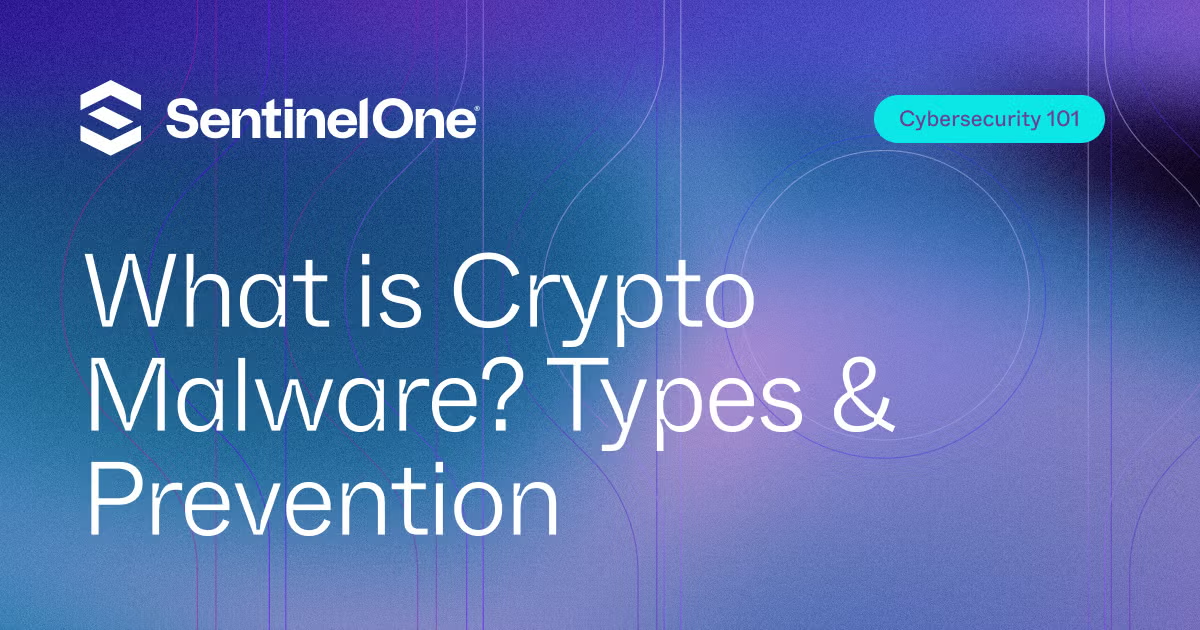Crypto malware encrypts files on a victim’s system, demanding a ransom for decryption. This guide explores how crypto malware operates, its potential impacts, and effective prevention strategies.
Learn about the importance of regular backups and security measures. Understanding crypto malware is essential for organizations to protect against ransomware threats.

What is Crypto Malware?
Crypto malware is a type of malicious software that targets digital wallets and cryptocurrency exchanges. It is designed to steal cryptocurrency by infecting a user’s computer or device and gaining access to their digital wallet or exchange account. Once the malware has access, it can transfer cryptocurrency to the attacker’s account, steal private keys or passwords, or even encrypt files and demand a ransom.
How Does Crypto Malware Work?
Crypto malware can infect a user’s device in several ways. One common method is phishing emails or links. Cybercriminals send emails or create legitimate websites that contain links to malware-infected files or websites. Once the user clicks on the link, the malware is downloaded onto their device.
Another way crypto-malware can infect a user’s device is through software vulnerabilities. Cybercriminals can exploit weaknesses in software programs to gain access to a user’s device and install malware. This is why it is essential to keep your software up-to-date with the latest security patches and updates.
Types of Crypto Malware
Cybercriminals use several types of crypto malware to target cryptocurrency users. One of the most common types is ransomware. Ransomware is malware that encrypts a user’s files and demands a ransom in exchange for the decryption key. The ransom is usually demanded in cryptocurrency, which makes it difficult to trace.
Another type of crypto malware is mining malware. Mining malware uses a user’s computer or device to mine cryptocurrency without their knowledge or consent. This can slow down the user’s device and cause it to overheat, leading to hardware damage.
How to Protect Yourself from Crypto Malware
There are several steps you can take to protect yourself from crypto malware. First, always keep your software up-to-date with the latest security patches and updates. This can help prevent cybercriminals from exploiting software vulnerabilities.
Second, be cautious of unsolicited emails or links. Always verify the sender and check the URL before clicking links or downloading files. If you are unsure about the legitimacy of an email or website, do not click on any links or download any files.
Third, use strong and unique passwords for all your digital wallets and exchange accounts. This can help prevent cybercriminals from guessing your password and gaining access to your account.
Finally, use a reputable antivirus software program and enable two-factor authentication on all of your digital wallets and exchange accounts. Two-factor authentication adds an extra layer of security by requiring a second form of authentication, such as a text message or fingerprint, before allowing access to your account.
 Enhance Your Threat Intelligence
Enhance Your Threat Intelligence
See how the SentinelOne threat-hunting service WatchTower can surface greater insights and help you outpace attacks.
Learn MoreHow SentinelOne Can Help Enterprises to be Safe from Crypto Malware Threats
SentinelOne is an endpoint security software that uses artificial intelligence and machine learning to protect enterprises from a wide range of cyber threats, including crypto malware. With its advanced threat detection and response capabilities, SentinelOne can help enterprises stay ahead of evolving cyber threats and protect their digital assets.
One of the key features of SentinelOne is its ability to detect and respond to threats in real time. This means that if a device on the enterprise network is infected with crypto-malware, SentinelOne can detect the threat and respond immediately, preventing the malware from spreading to other devices on the network.
SentinelOne also offers advanced behavioral detection capabilities, which can detect and block malware that may not be detected by traditional signature-based antivirus software. This is particularly important for protecting against new and emerging threats like zero-day attacks.
In addition, SentinelOne offers granular policy controls and management capabilities, allowing enterprises to customize their security settings based on their specific needs and requirements. This can help ensure that all devices on the network are protected from crypto malware and other cyber threats.
Overall, SentinelOne can provide enterprises with a comprehensive endpoint security solution that can help protect against crypto malware and other cyber threats. By leveraging its advanced threat detection and response capabilities, enterprises can stay ahead of evolving cyber threats and keep their digital assets safe.
Conclusion
Crypto malware is a growing threat to cryptocurrency users. Cybercriminals are constantly finding new ways to exploit the system and steal cryptocurrency. However, by taking the necessary precautions and following the steps outlined in this article, you can protect yourself from crypto malware and keep your digital assets safe.
FAQs
Ransomware is one of the most common types of crypto malware. It encrypts a user’s files and demands a ransom in exchange for the decryption key
Endpoint security software can help prevent crypto malware by detecting and removing malicious software from your device. However, it is important to keep your software up-to-date and use additional security measures such as two-factor authentication.
If you suspect you have been infected with crypto-malware, immediately disconnect your device from the internet and run a full virus scan using your antivirus software. Change all your passwords and enable two-factor authentication on all your digital wallets and exchange accounts.
- Storing your cryptocurrency on an exchange can be convenient but comes with risks. Exchanges have been targeted by cybercriminals in the past, resulting in significant losses for users. It is recommended to store your cryptocurrency in a cold wallet, which is not connected to the internet.
Stay informed about the latest crypto malware threats by following reputable cybersecurity blogs and news sources. Keep your software and antivirus programs up-to-date, and be cautious of unsolicited emails or links.


